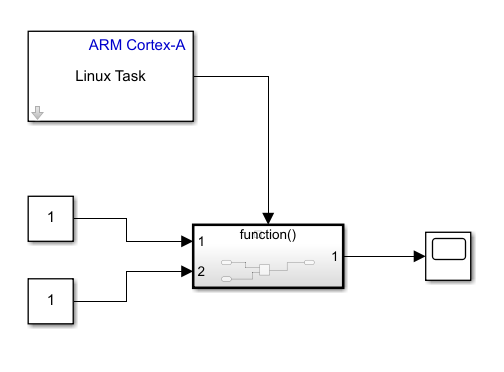Linux Task
Spawn task function as separate Linux thread
Add-On Required: This feature requires the Embedded Coder Support Package for ARM Cortex-A Processors add-on.
Libraries:
Embedded Coder Support Package for ARM Cortex-A Processors
Description
Use this block to create a task function that spawns as a separate Linux® thread. The task function runs the code of the downstream Function-Call Subsystem block.
Examples
Ports
Output
Parameters
Version History
Introduced in R2014a

